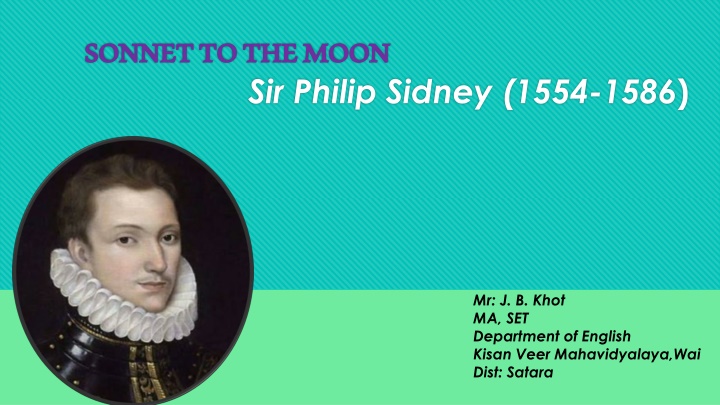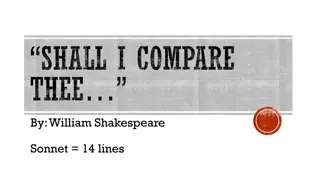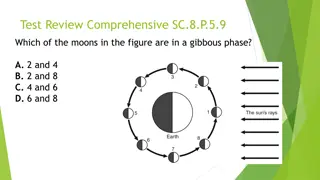Sonnet to the Moon by Sir Philip Sidney: A Poetic Ode to Unrequited Love
Born in 1554, Sir Philip Sidney was an Elizabethan courtier, poet, and scholar. "Sonnet to the Moon" from his work "Astrophel and Stella" explores unrequited love through an address to the moon as a sympathetic observer. The poem reflects on the nature of love, beauty, and virtue. With eloquent imagery and heartfelt emotion, Sidney's sonnet captures the pain and intricacies of unreturned affection.
Download Presentation

Please find below an Image/Link to download the presentation.
The content on the website is provided AS IS for your information and personal use only. It may not be sold, licensed, or shared on other websites without obtaining consent from the author.If you encounter any issues during the download, it is possible that the publisher has removed the file from their server.
You are allowed to download the files provided on this website for personal or commercial use, subject to the condition that they are used lawfully. All files are the property of their respective owners.
The content on the website is provided AS IS for your information and personal use only. It may not be sold, licensed, or shared on other websites without obtaining consent from the author.
E N D
Presentation Transcript
SONNET TO THE MOON SONNET TO THE MOON Sir Philip Sidney (1554-1586) Mr: J. B. Khot MA, SET Department of English Kisan Veer Mahavidyalaya,Wai Dist: Satara
Introduction to the Poet: Born on November 30, 1554 Penshurst, Kent, England died October 17, 1586, Arnhem,Netherlands. Elizabethan courtier, statesman, soldier, poet, and patron of scholars and poets. Among the many poets and prose writers who sought his patronage were Edmund Spenser, Abraham Fraunce, and Thomas Lodge. NOTABLE WORKS: The Defence of Poesie Astrophel and Stella Arcadia
Introduction to the Poem: It is sonnet 31 from Sir Philip Sidney s Astrophel and Stella . Inspired by his unrequited love for Penelope Rich (nee Devereux). Sidney addresses the moon as a potential fellow-sufferer from Cupid s cruel arrows. It follows the Petrarchan sonnet model.
Poem With how sad steps, O moon, thou climb st the skies; How silently, and with how wan a face. What, may it be that even in heavenly place That busy archer his sharp arrows tries? Sure, if that long-with-love-acquainted eyes Can judge of love, thou feel st a lover s case; I read it in thy looks; thy languished grace To me, that feel the like, thy state descries. Then, even of fellowship, O moon, tell me, Is constant love deemed there but want of wit? Are beauties there as proud as here they be? Do they above love to be loved, and yet Those lovers scorn whom that love doth possess? Do they call virtue there ungratefulness?
With how sad steps, O moon, thou climbst the skies; How silently, and with how wan a face. What, may it be that even in heavenly place That busy archer his sharp arrows tries?
Sure, if that long-with-love-acquainted eyes Can judge of love, thou feel st a lover s case; I read it in thy looks; thy languished grace To me, that feel the like, thy state descries.
Then, even of fellowship, O moon, tell me, Is constant love deemed there but want of wit? Are beauties there as proud as here they be?
Do they above love to be loved, and yet Those lovers scorn whom that love doth possess? Do they call virtue there ungratefulness?























